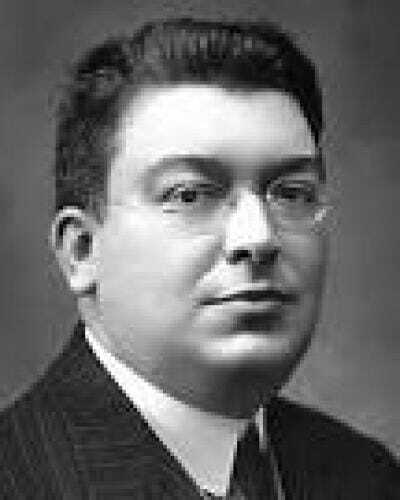Musica: AR Oracion Lucumi (2.28) 0 to .26
GJ: Hi, Gerwyn Jones here with Maria Carla O’Connor. Welcome to this edition of From The Bookshelf. Countless books have been written about Havana in years gone by and in many languages. Some of the best were written in Spanish, as you would expect, and many of these are awaiting translation. One of my favourites was written by Fernando Ortiz and its title is Los Negros Curros. To the best of my knowledge no English translation has yet been published and I have translated some choice citations for today’s show.
MCO: The scholar Fernando Ortíz certainly was one of the most important and prolific of Cuban authors. Some of his writing is very colourful especially when describing the Havana of years gone by.
GJ: "...the best known and most frequented port in all the New World; with the atmosphere of corruption and criminality characteristic of all the other great ports of the world; with the abundant traffic of men of adventure and utterly cosmopolitan.
MCO: Amazing…
GJ: The plazas of Havana constantly created and sustained this atmosphere of exaltation, outrage, gambling and prostitution and not only by the inhabitants of the country, up to the neck in the exploitation of slavery and wheeling and dealing with pirates and fillibusters, but also the soldiery, the rabble of the galleys, the prisoners of the arsenal, sailors from the fleets, the dandies, the newly enriched Spanish, the civil, military and ecclesiastical authorities given to rivalries, briberies, plotting and contraband...and no other port in Cuba had such close relations with Seville and its underworld."
MCO: A nice piece of translating from Los Negros Curros by Fernando Ortiz! Ortiz died in 1969 and the book was published posthously and then re-published in Havana by the Editorial Ciencias Sociales in 1995.
Cortina: AR Oracio lucumi (2.28) .35 to .45
MCO: In Los Negros Curros, Fernando Ortiz writes about the mainly black Cuban secret society of the Abakua, also known as the ñañigos:
GJ: These were ancestrally African negros…who in the first third of the 19th. Century came from West Africa, above all from Efic and Cantabrian territories.
Ortiz describes how the Abakua founded in Regla male-only secret societies of a defensive character, much given to quarrels between the groups and sects and practically united through blood oaths, religious ceremonies, animal sacrifices, songs, drumming, funerals and cryptic rites. These fraternities or confraternities were known in Cuba as Abakuá by its members, with mysteries and languages persisting in this country as in Africa, very numerous in the past and constituting one of the most curious and original phenomenon of African transculturation in all America.
MCO: I heard the word transculturation and, of course, this was one of the key terms Fernando Ortíz used when describing the process by which the hundreds of thousands of Africans brought to Cuba as slaves melded their cultures with those of people mainly of European ancestry and became part of the Cuba that we know today.
GJ: After Ortiz's death the government established the Fernando Ortiz Foundation, which devotes itself to studies of ethnology, sociology and Cuba's popular traditions. In current times the foundation continues the work started by its founder and initiates serious scholarly discussions around many cultural issues, including troubling matters like the survival of elements of racism and racial prejudice, as well as measures that must be taken to confront these problems.
CORTINA: AR Oracion Lucumi (2.28) .59 to 1.07 and fade…


